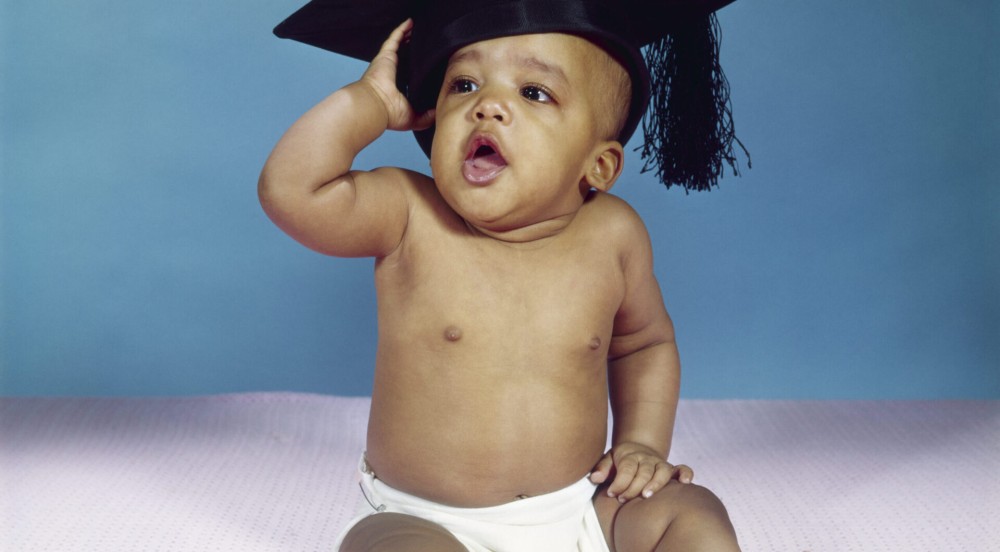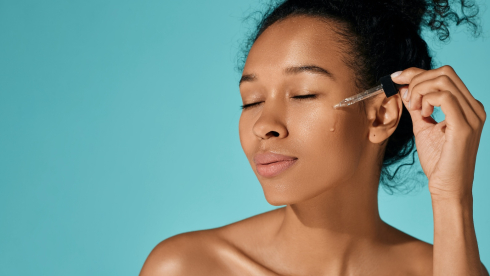This post was originally featured on the site August 2016.
Several years years ago, Syronda Armstrong sat in a disciplinary hearing with several administrators of Winston Salem State University (WSSU) and her eldest son, Aaron. It was a tough meeting to make as Syronda is a single mother of three who works two jobs and a full-time student. But her son—who was on the Dean’s list and Mr. Sophomore at the university—was in trouble. He had used another student’s meal card without permission.
Syronda anticipated a tough conversation, but she was shocked when the administrators veered from the infraction to another topic and pushed across the table photos of Aaron in drag.
“I was horrified. I felt like I was a bad mom, for not preventing my son from being gay. In hindsight, I know that’s not something I had any control over, but in those moments, I felt responsible,” says Syrondag. “They told us that the way he was dressed was unacceptable for a representative of WSSU. But they’d let him off the hook for the meal card if he started dressing more masculine. If he didn’t, he’d be asked to step down from his position and would not be allowed to run for any other office at the university.”
The unfortunate reality is that many LGBTQ+ students of color, such as like Aaron, feel unsafe or uncomfortable because of their gender expression and/or sexual orientation at school—a place meant to nurture and build up students, not tear them down. While there has been tremendous mobilization and movement led by student organizers at Historically Black Colleges and Universities (HBCUs) like WSSU, among the 105 historic institutions, roughly 20 percent have LGBT student groups and only a handful have gender identity and expression covered in their nondiscrimination policies.
Aaron had only come out to his mother a couple of weeks before his disciplinary hearing. And, Syronda was conflicted—working to reconcile her Christian faith background with her son’s identity. She remembers seeing the photographs and thinking that her son was moving further and further away from the Christian foundation on which she raised him.
“All my life I had been taught that being gay was against God’s word. It’s hard to reconcile those teachings when you have a child who you love and want to protect who is gay,” explains Syronda. “At the time, I was grateful that the school was giving Aaron a way out of a life I didn’t understand.”
Aaron took the school’s message to heart. And without the money to buy more masculine clothes, he resorted to stealing them. Aaron was arrested.
“I wish I made a better decision, but I really didn’t feel like I had a choice. I wanted to make my mother and my school proud, so I did what I thought was necessary,” says Aaron. “I cried. I second-guessed myself. And I thought that if I couldn’t thrive, the least I could do was survive."
The next year, Syronda struggled with how to talk to her child while Aaron redoubled his efforts to be the model son and citizen. And even as he felt he was burying an essential part of himself, the following year he was honored as a Thurgood Marshall College Fund scholar. His next goal: becoming Mr. WSSU.
Fast-forward to a midnight phone call Syronda received from her son this past March. Aaron was clearly distressed as he told his mom that he was going to lose the election for Mr. WSSU. Pictures of Aaron dressed in drag—the same ones she had been handed years earlier—were being circulated around the internet. And a flurry of virulent homophobic and transphobic tweets—most notably from WSSU alumnus and comedian, Brian “BDHAT” McLaughlin—targeted Aaron.
“It wasn’t just that he wanted to win. He wanted to help create a prominent place at WSSU for LGBTQ+ students—a space he didn’t have for himself.” says Syronda. “WSSU failed him in addressing the numerous threats he received and the trauma the ordeal caused him.”
Aaron learned that the old schoolyard saying about sticks, stones and slurs did not ring true, especially for LGBTQ+ students of color who are often targeted just for being who they are—and face multiple levels of discrimination for living at the intersection of these identities. In fact, according to Campus Pride’s report, State of Higher Education for LGBT People, LGBTQ+ students who were also people of color felt less comfortable in their classes than their white counterparts did.
While McLaughlin dialed back his rhetoric and issued an apology, both Syronda and Aaron feel the university has distanced itself from the incident. It still has no non-discrimination policy protecting students from bias based on gender identity and expression (the school has had sexual orientation in its non-discrimination policy since 2009). Nor has it hosted any community forums on LGBTQ+ issues on campus. Both of which were asked for by Aaron and those who support him.
On April 1, 2014, Winston-Salem State University’s Chancellor, Donald J. Reaves issued the following statement:
“Winston Salem State University strives to be a campus where diversity can thrive. We believe strongly that the educational environment is enriched by the unique attributes, perspectives and outlooks embodied in the people who make up our university family and community. Words or actions that seek to marginalize any person or group constitute unacceptable behavior and are not tolerated.”
In an email to EBONY, Nancy Neal Young, WSSU’s Director of Public Relations expressed, “This certainly was an uncalled for series of events and even though there have been apologies given, it does not take the sting out of what happened. We are continuing to develop opportunities to address any potential future issues of discrimination or harassment to the broader campus.”
Young pointed out that this was not Aaron’s first run for student office. He was previously elected Mr. Freshman and Mr. Sophomore.
“We value the benefits that diversity and inclusion contribute to our educational mission, both as a university and as a community,” she added.
“It’s not all the school can do, but it’s a start,” says Syronda, who has welcomed support for Aaron from local and national allies since their story hit the news. “And I know now that Aaron had every right to express himself without facing threats from his school and without facing bullying on social media.”
Shortly after the events transpired, she was contacted by former WSSU administrator and founder of We Are Straight Allies, Chevara Orrin, who then connected her with the Human Rights Campaign, PFLAG and the National Black Justice Coalition.
“Knowing these organizations exist for people like Aaron and for parents like me [they have] been life-saving. There’s power in knowing you aren’t alone, and that you have a community,” explains Syronda.
Aaron agrees, “When I found out about HRC’s Historically Black Colleges and Universities Program, I knew I’d be applying. I’m hoping to let other students going through what I’ve been through know that there is hope.”
As for her faith, Syronda is on her path to reconciliation. “I know that it’ll take some time for me to understand everything Aaron is going through, but I love my son. God doesn’t make mistakes.”
Samantha Master is a Black queer femme-inist and social justice advocate who descends from three generations of HBCU graduates. By day she works in the Youth and Campus Engagement Program at the Human Rights Campaign and by night is a baker extraordinaire. Follow her @SamanthaEMaster.
Kimberley McLeod is a media strategist and lesbian, gay, bisexual and transgender (LGBTQ+) advocate. She is the founder and editor-in-chief of ELIXHER, an award-winning website and magazine for Black LGBTQ+ women. Follow her on Twitter @KimKMcLeod.













